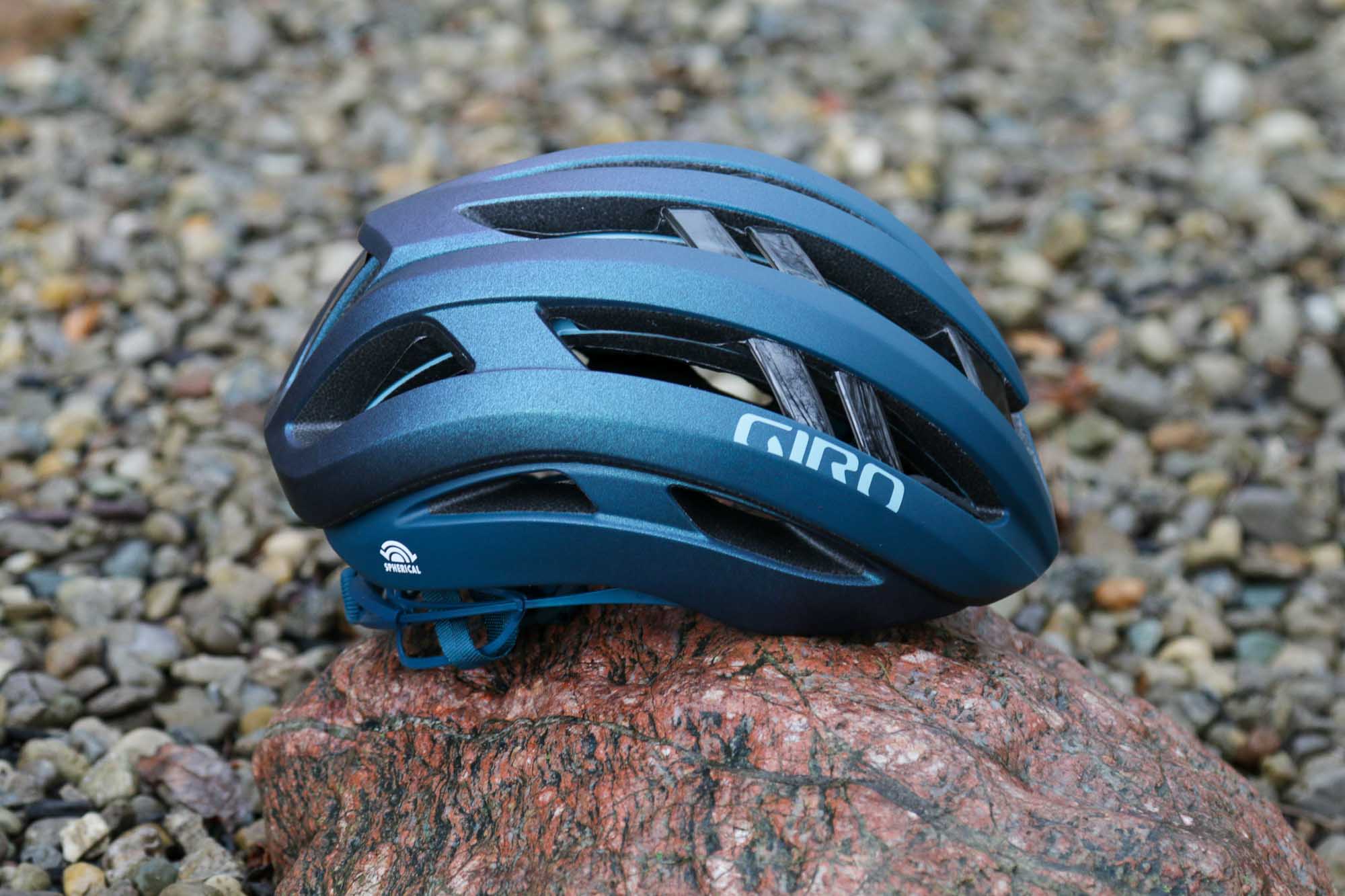Giro has a new top-of-the-line road helmet. Called the Aries, their newest helmet with ‘Spherical Technology Powered by MIPS’ takes the place of the Aether as their lightweight, highly ventilated, and slightly more aerodynamic champion of their helmet line.
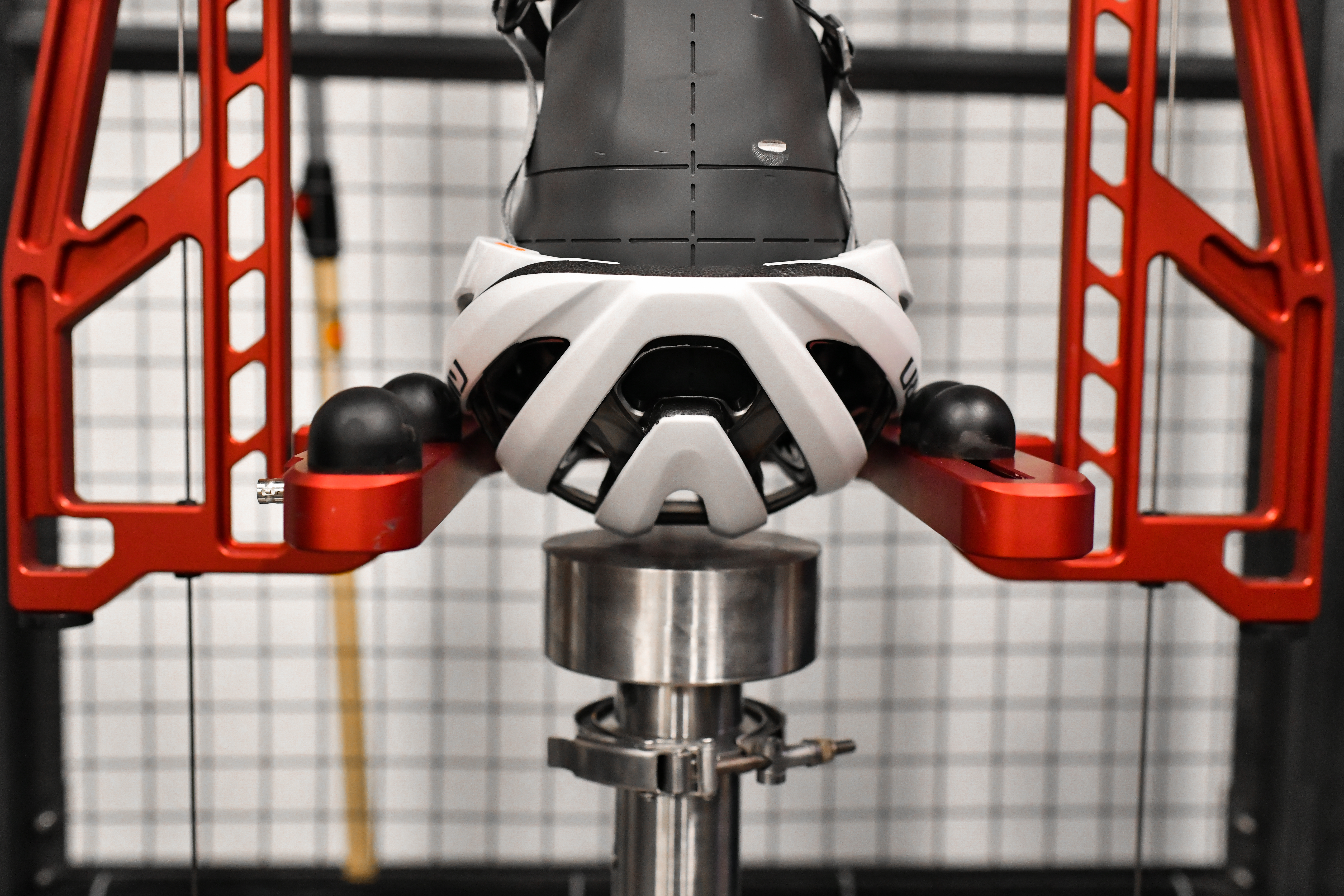
Testing Cooler
While the margins are relatively small, Giro is confident they have made significant improvement over the Aether. Much of that comes from their own in-house testing and design at their DOME test lab. Going beyond the typical impact testing that most helmets face, Giro includes tests on fixtures like the Therminator – aluminum headform with 30 thermocouples that measure actual temperature differences the user is likely to experience. The Therminator is heated up to 100º, and then air passes through the helmet in the wind tunnel for 30 minutes. Giro can track the starting temp, end temp, and changes in temperature every second.
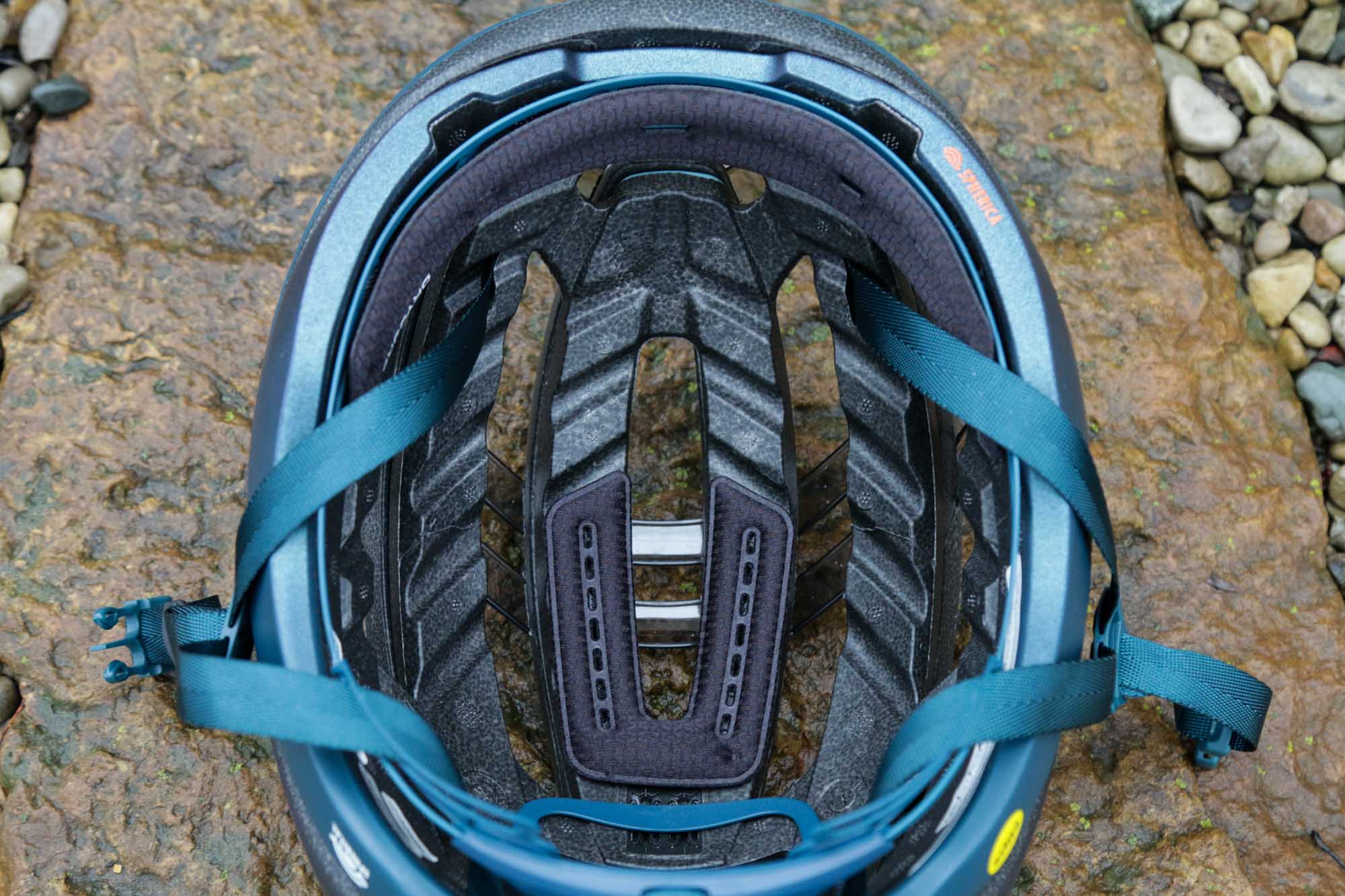
Using this process, they determined the new Aries is 2.3% cooler than the Aether. That’s no small feat considering the Aether was already a massively ventilated helmet. Part of that cooling is deep internal channels that reduce the contact patch of your helmet to your head for better cooling.
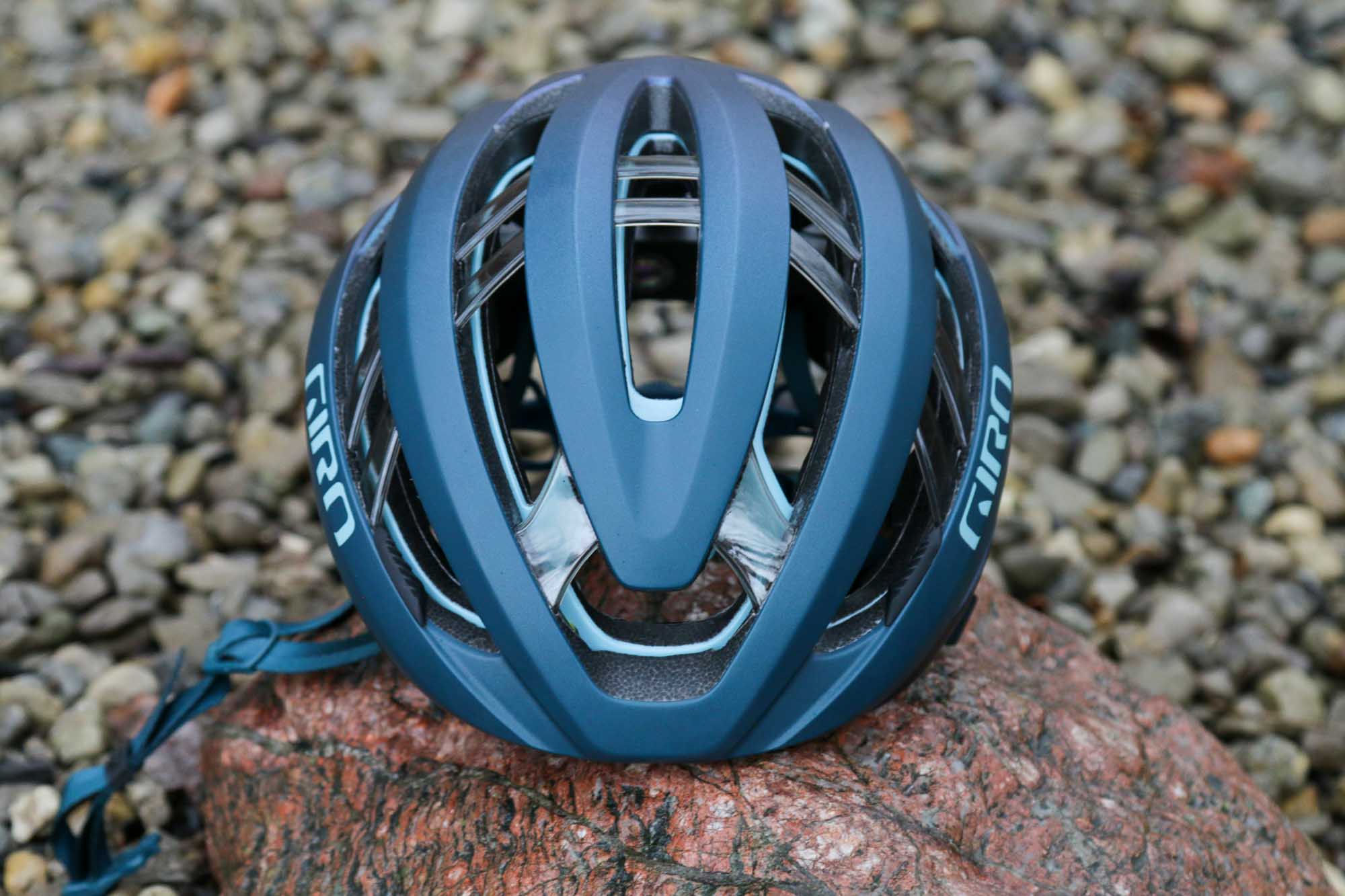
The Eclipse is still Giro’s Aero-focused road helmet while the Aries is a road do-all helmet, but Giro mentions that “aero is always on.” They confirmed that visually smaller helmets tend to be actually faster be faster in the wind tunnel, and that’s true here as well. The Aries is 7% smaller side to side compared to the Aether which results in a narrower profile. The angle of the Aura reinforcing bridge is also optimized for a riding angle of 30º, with the leading edges chamfered for streamlining. Each vent is also optimized for aerodynamics and cooling, with air exiting the center vent faster than it enters.
All of these aero touches add up to a 4% reduction in drag over Aether. That’s not a huge number, but at this level, every bit counts. The Eclipse will still be the fastest helmet aerodynamically by about 6%.
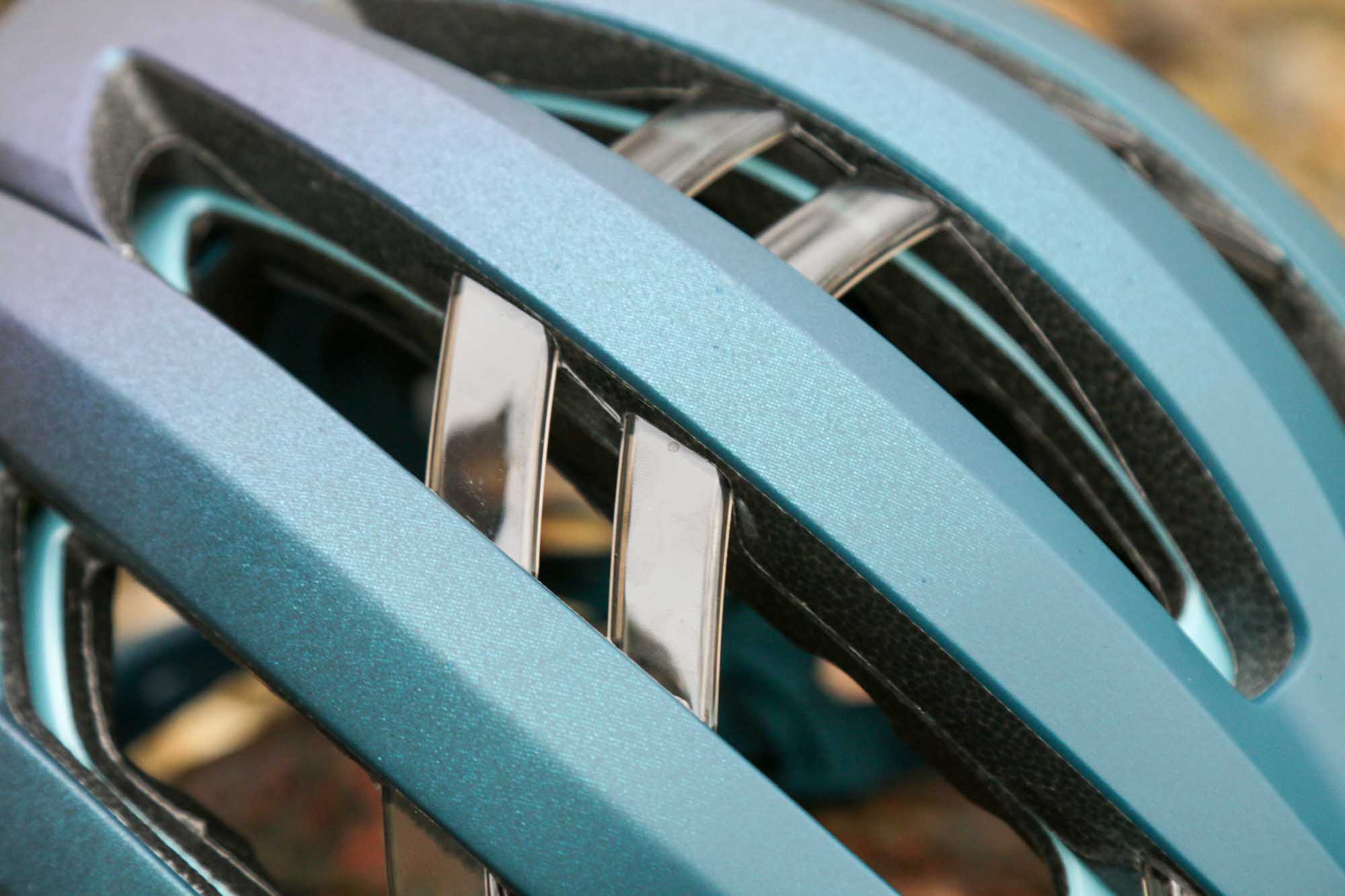
Aura II Reinforcement
One of the main challenges to designing a helmet like the Aries is making a helmet that’s more air than foam but still protective. With 24 sizeable vents, you need something to prevent the helmet from blowing apart upon impact. The Aether already used their Aura polycarbonate reinforcing bridge, but the Aries takes it to the next level with Aura II.
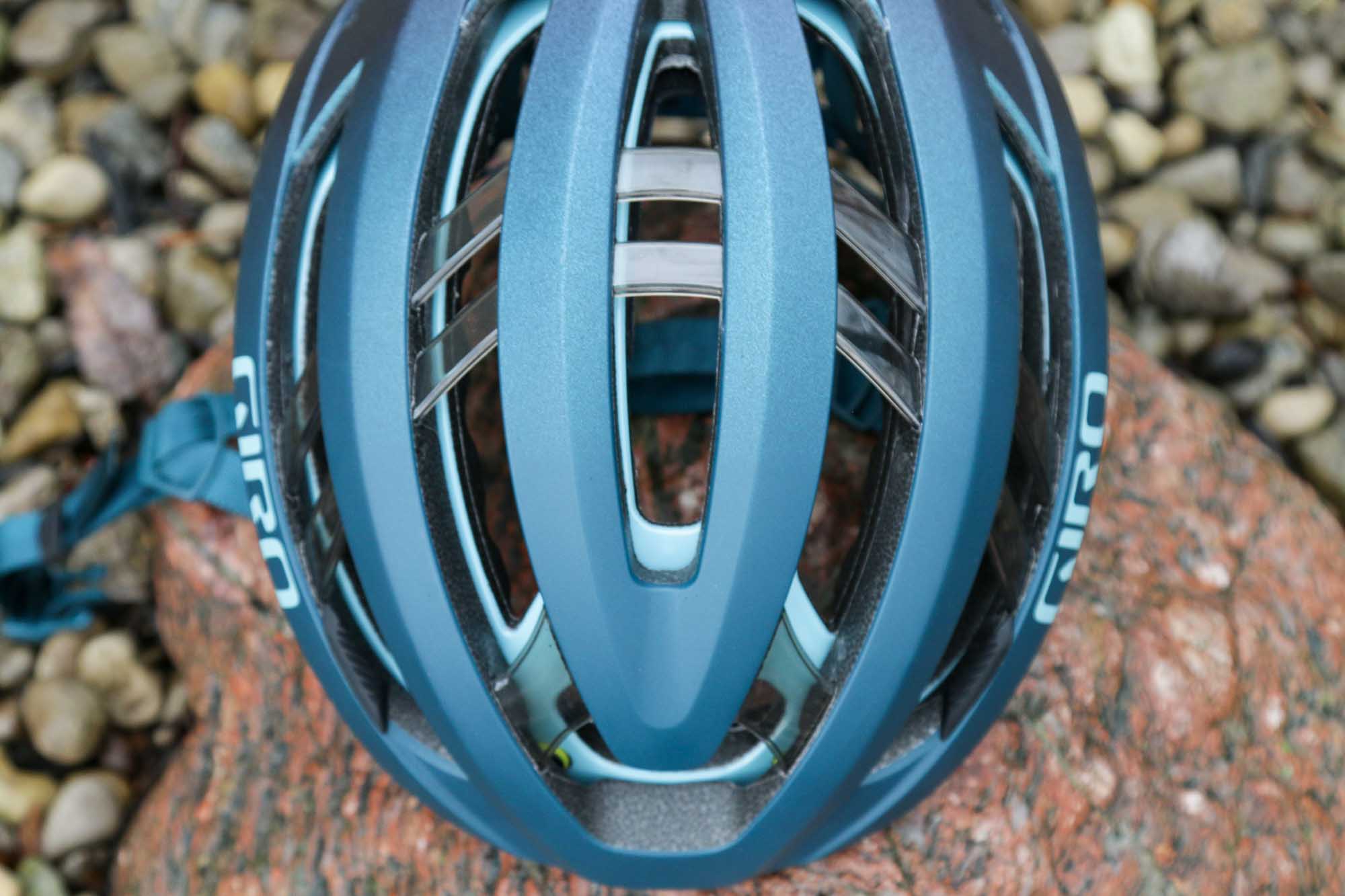
Using the same technology, Giro split the main bridge into two thinner bands that stretch from one side of the helmet to the other.
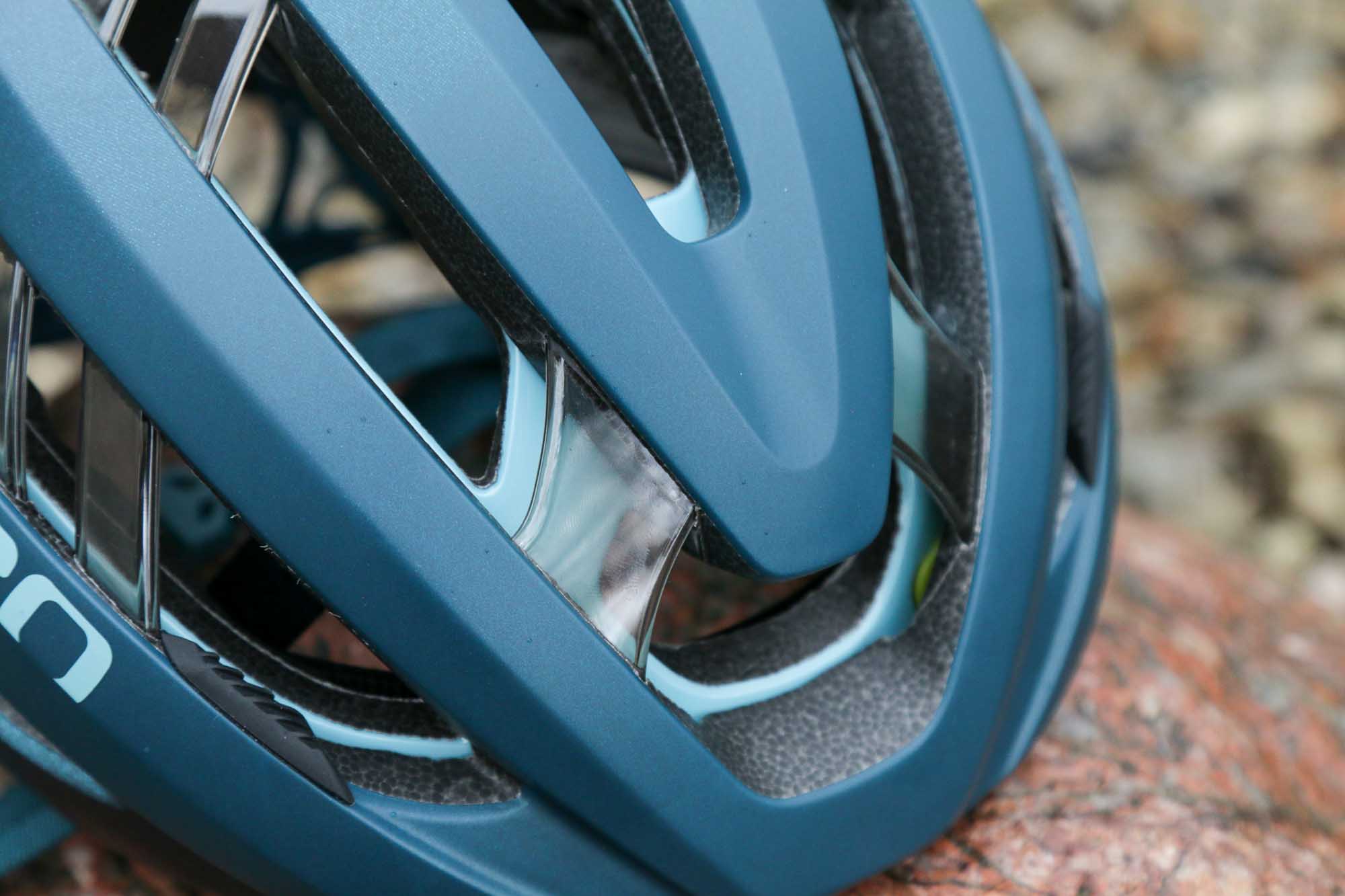
There’s also a new bridge upfront that forms a ring at the front of the helmet. The combination of these reinforcing bridges allow the helmet to survive impact testing where the helmet is dropped onto triangular, round, and flat profiles.
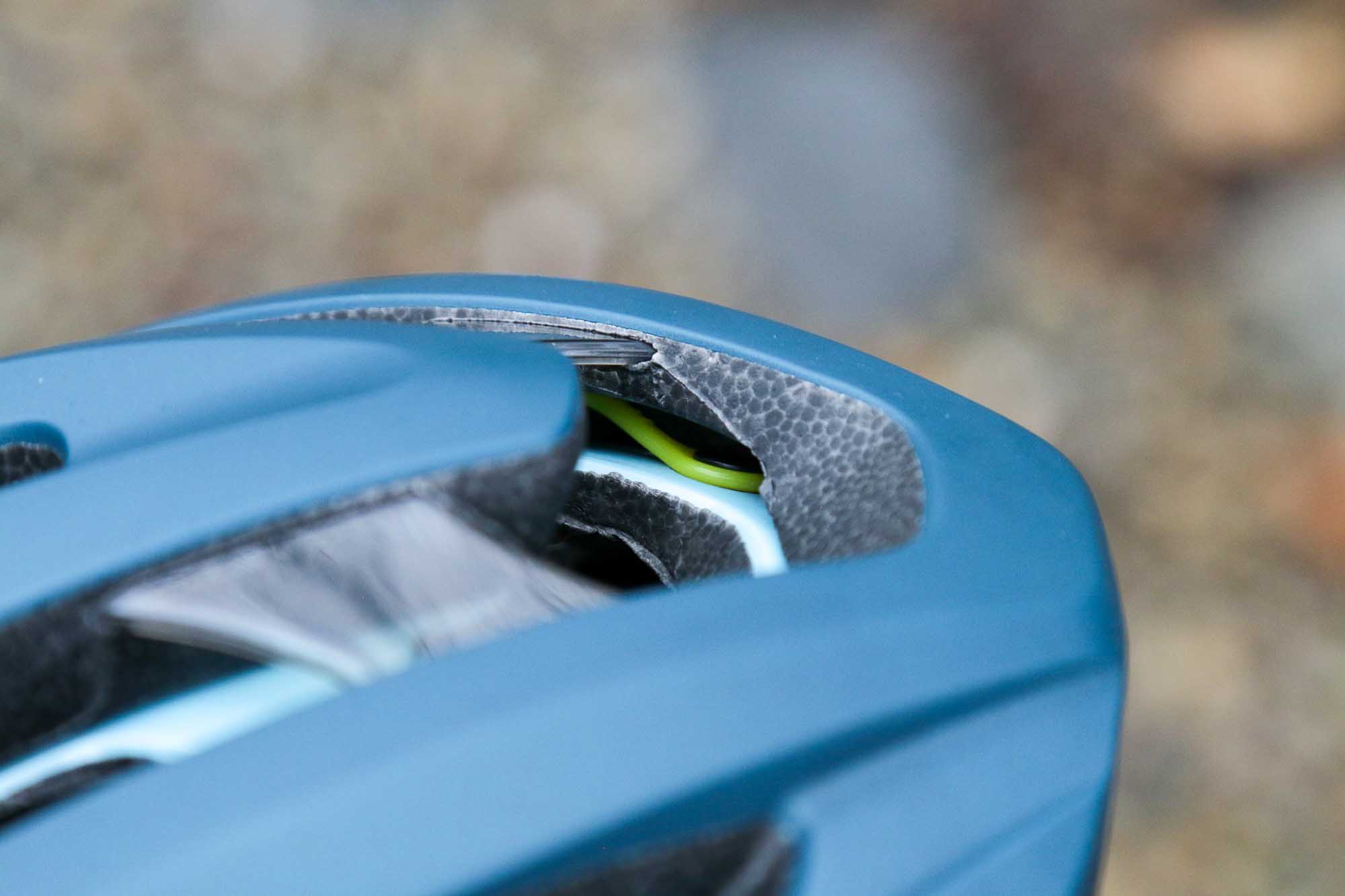
Spherical Technology Powered By MIPS
Like the Aether, the Aries continues the use of Spherical Powered by MIPS technology. Instead of a MIPS liner added to the inside of the helmet, Spherical helmets are built with two different halves that act as a ball and socket joint with the MIPS layer sandwiched in between. This also allows Giro to use different density foam – you’ll find a harder density on the outer shell, and softer density on the inner shell, which helps the helmet cope with low-speed and high-speed impacts.
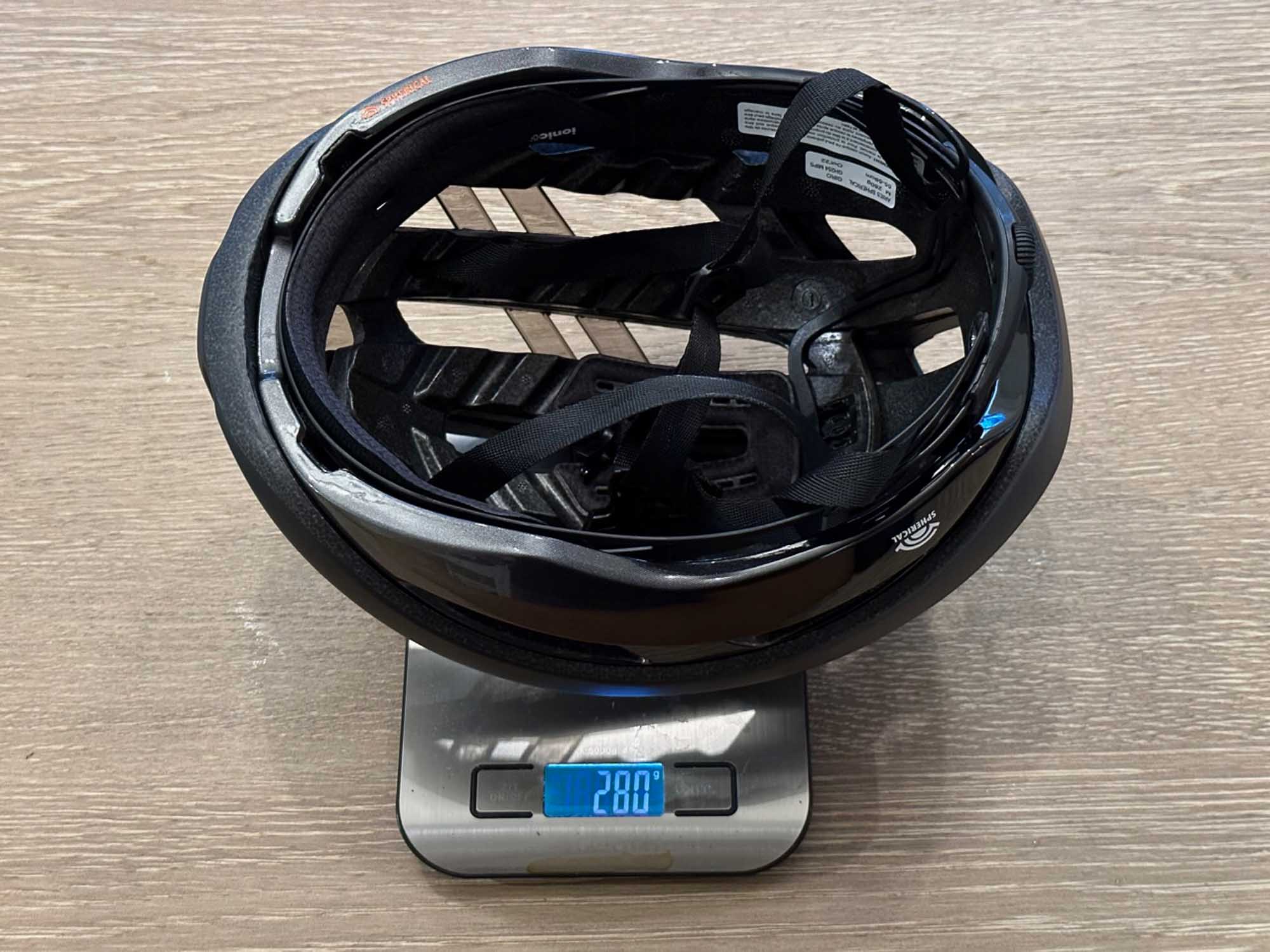
Actual Weight
Yet, even with all of this, the Aries is still claimed to be 5% lighter than the Aether. The claimed weight for a CE-rated medium helmet is 265g, which would have placed it just under our CE-rated sample Aether. Though when the Aether was launched, the claimed weight was 250g for a CE-rated medium. This CPSC-rated medium comes in heavier at 280g.
It’s also the highest-rated helmet Virginia Tech has ever tested according to Giro. The company points out that all Giro bike helmets have a 5-star rating from Virginia Tech, but the Aries has the best score of all helmets including enduro and DH helmets.
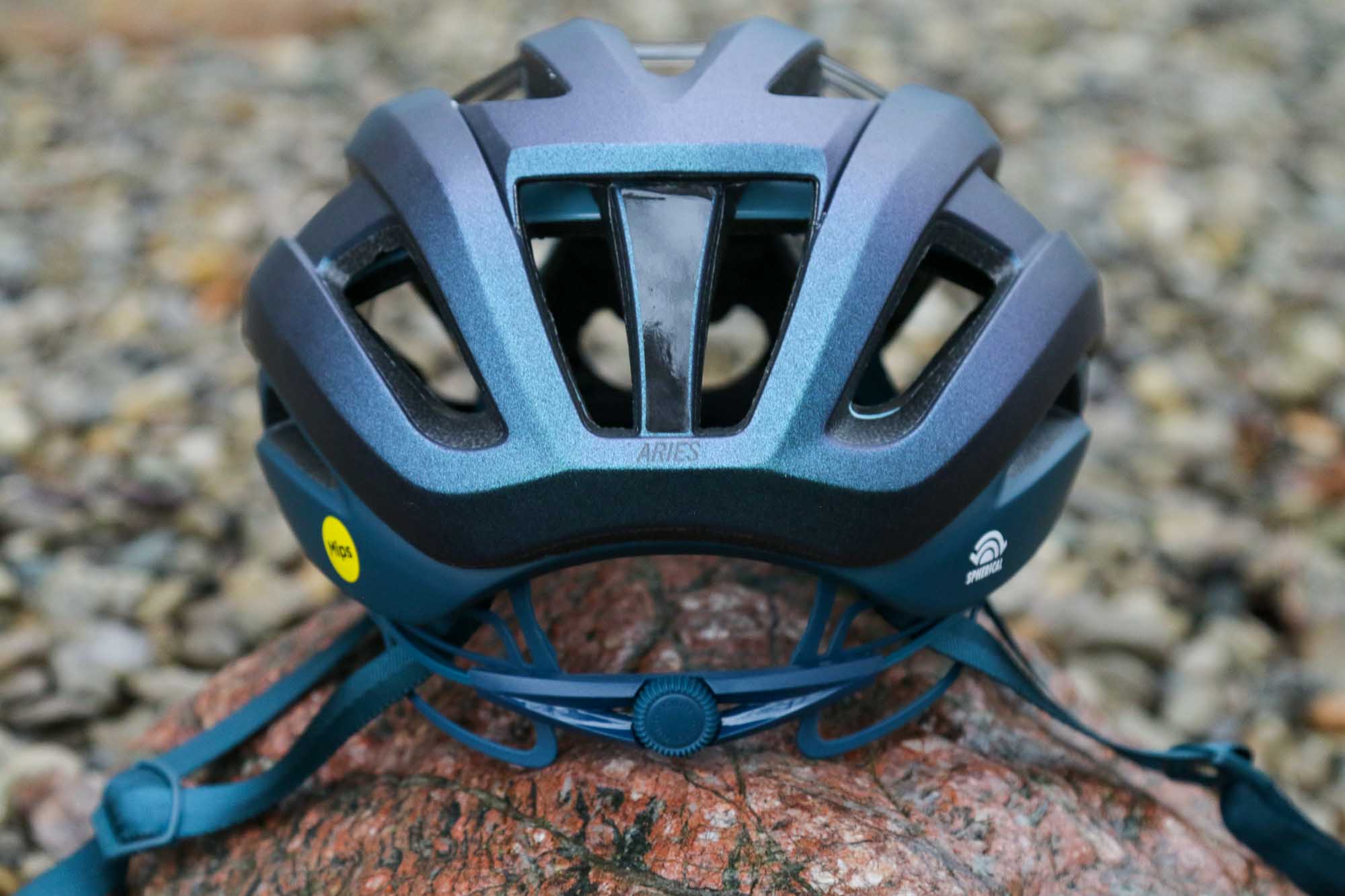

Retention System & Innovative Padding
Inside the Aries, you’ll find Giro’s typically excellent Roc Loc 5+ Air retention system with horizontal and vertical adjustment. Most interesting might be the new DryCore padding at the front. While looking like a normal pad, there’s a hidden internal silicone bead that will redirect sweat away from your eyes and channel it to the temple. Helmets will also ship with a normal front pad if you prefer it.
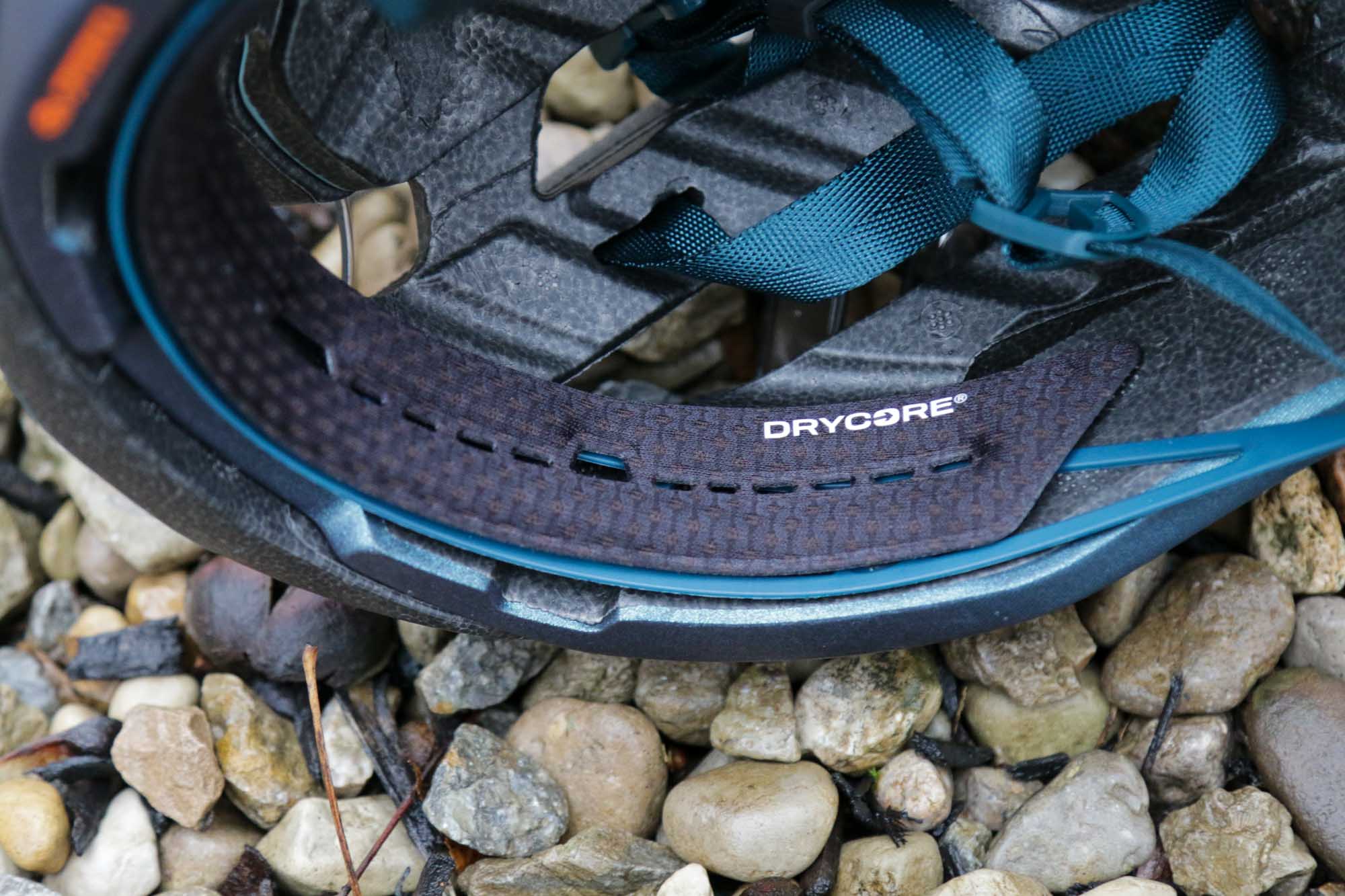
First Impressions
I’ll say that while wearing the Aries, the DryCore pad doesn’t feel much different at all. Which is to say it’s very comfortable. Given the temperature outside, I haven’t had a chance to test out the sweat-channeling abilities, but I’m pretty excited to see if it works as advertised.
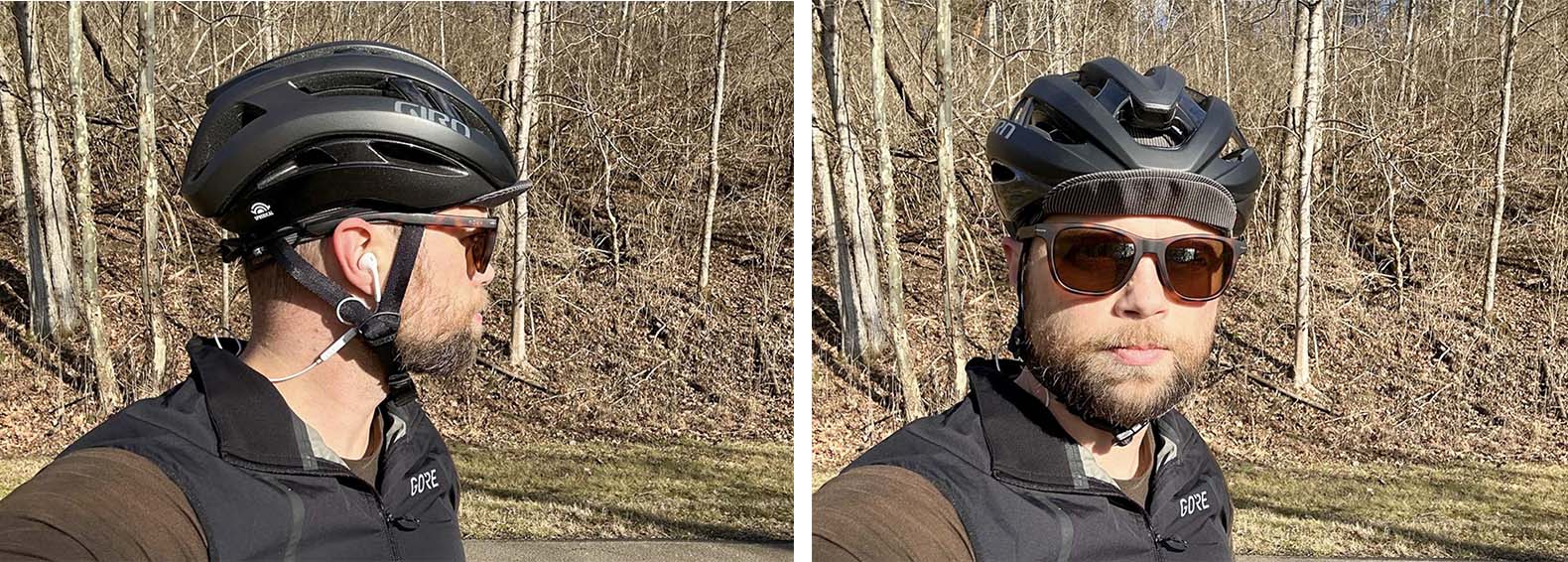
Overall, the Aries does feel a bit narrower than the Aether which may affect your fit depending on the width of your head and if you wear hats underneath. I’ve always been a medium in Giro, and that continues with the Aries. The first few rides make this feel like a worthy successor to the Aether.
Giro Aries Pricing, Colors, and Sizing
Impressively, the Aries is less expensive than the Aether at the time of launch, with a $300 price tag. You can find the Aries in five colors (including the black-to-grey fade, and blue-to-purple prismatic colors shown above) and S, M, and L sizes.
